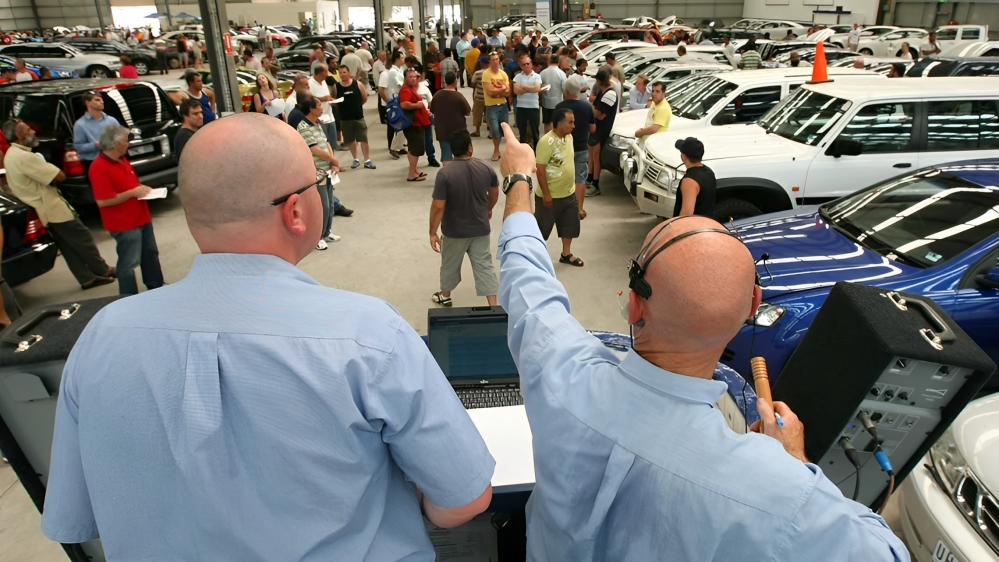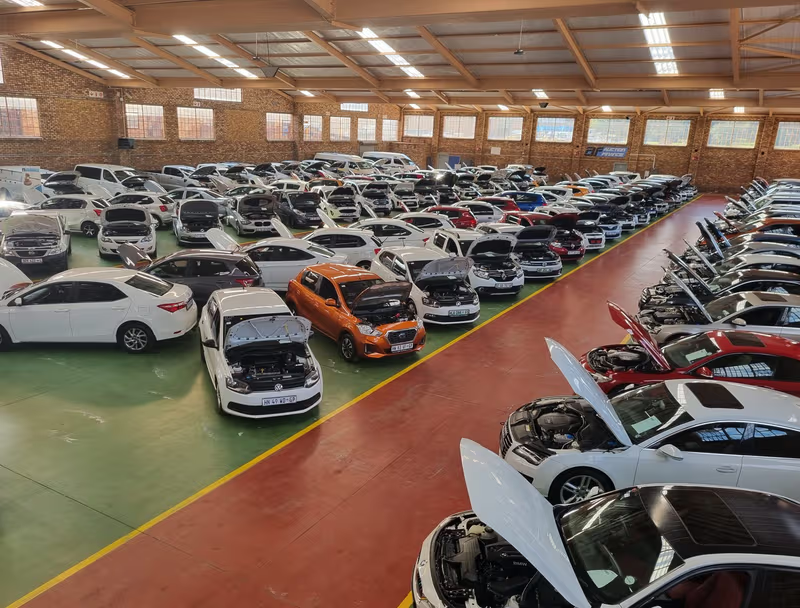Auto auctions sell vehicles to the highest bidder. These events move fast and offer big value. More people, both private buyers and car dealers, now use auctions to get good deals on all kinds of vehicles. Why? Because auctions cut out the pressure of salesmen, show you what you’re buying, and let you choose from hundreds of cars in one place.
Types of Auto Auctions

Public Auctions
Anyone can join. These auctions often sell cars from banks, government fleets, repossessions, or trade-ins.
Dealer-Only Auctions
Only licensed dealers can buy here. These auctions offer better prices and large volumes.
Online Auctions
You can bid from anywhere. Many buyers like online auctions for the easy access and digital tools.
Specialty Auctions
Want something rare? These auctions sell classic cars, collectibles, or luxury models that don’t show up at regular auctions.
Salvage Auctions
These sell damaged or total-loss vehicles. Insurance companies or towing yards usually send these in. The cars need repairs, but the price is low.
Step-by-Step: How the Auction Process Works

1. Register for the Auction
You must sign up before you can bid. Most auctions ask for ID and a refundable deposit. You also agree to follow their rules.
2. Look Through the Vehicle List
Every auction has a catalog. Some print it. Most put it online. It shows each car’s photos, VIN, title status, and any reported damage or accident history.
Want to know if that SUV had flood damage? Check the listing first.
3. Inspect the Vehicles
In-person auctions let you see the car up close. You can pop the hood, check the tires, or even bring a mechanic.
For online auctions, you rely on photos, 360° views, and written condition reports. Some websites even offer third-party inspections if you want peace of mind.
4. Set Your Budget
Before you bid, know your limit. Don’t forget:
- The final bid price
- Buyer’s fees (usually 5–15%)
- Tax, title, registration
- Delivery or towing fees
Can you really afford that pickup after you add all that?
5. Join the Bidding
Each car starts at a base price. Bids rise as people compete. Some sellers set a reserve, if the bids don’t meet it, the car doesn’t sell. If you’re close to the reserve, the auction might mark it as “IF” (meaning the seller may still accept your offer later). Bidding feels fast, either paddle in hand or mouse in hand.
6. Make Payment and Finalize the Deal
If you win, you pay fast, usually the same day. Most auctions accept cashier’s checks, wire transfers, or dealer financing. They’ll handle the title paperwork, but you cover all extra fees.
7. Pick Up the Vehicle
After payment clears, you get a gate pass and your documents. Dealers often use dealer plates to drive the car out. If you’re a private buyer, you’ll need to arrange towing or register the car before driving it.
Key Features That Benefit Buyers
No Pressure Sales
Auto auctions don’t push you. You choose what to bid on. No sales staff. No awkward talks. You control every move.
Full Transparency
Need the car’s history? You get access to condition reports, accident records, and title details before bidding. Online auctions even show live updates while bids roll in. No hidden surprises.
Huge Vehicle Variety
Where else can you find a $2,000 beater, a luxury BMW, and a flood-damaged truck in one place? Auctions put budget cars, premium rides, and salvage units side by side. You just pick what fits your goal.
Market Data & Trends (2023–2029)
Curious how big the auto auction world really is? Let’s break it down:
| Metric | Key Insight |
| Market Size | Auctions moved $3.32 billion in 2023. That number could hit $4.13 billion by 2029. |
| Vehicles Sold | Buyers purchased 13.84 million vehicles at auction in 2023 alone. |
| Online Auctions | Online channels grew the fastest, thanks to convenience and tech upgrades. |
| Buyer Types | Dealers stock their lots here. Private buyers hunt for steals. |
| Buyer Fees | Most auctions charge an extra 5–15% fee on top of your winning bid. |
| Salvage Savings | Damaged cars sell cheap, often at 39–57% below retail. Great if you know how to repair or flip. |
Tips for First-Time Buyers

Know What the Car Is Worth
Check the market price before you raise your hand. Don’t rely on guesses. Use tools like Kelley Blue Book or auction price guides.
Always Inspect the Car
Never skip the inspection. Read the report. Check the photos. Ask questions. Miss one red flag, and you could regret it later.
Set a Firm Budget
Set your top price, and don’t go over it. Auctions move fast, but overspending sticks with you.
Follow the Rules
Pay on time. Pick up the car before the deadline. Understand every fee. Messing up here can lead to fines or even losing your car.
Add Up the Real Costs
The winning bid isn’t the final price. Taxes, title, repairs, and delivery all add up. Do the math before you bid.
How Online Auctions Reshape the Landscape
Online auto auctions changed everything. Now, buyers don’t need to travel or wait for a weekend sale. You can bid anytime, from your laptop or phone. Whether you’re at home or on the move, the auction runs 24/7. Want to see the car up close? These platforms provide 360° photos, HD videos, and remote inspections.
Still not sure? Some sites offer third-party condition reports so you don’t walk in blind. And here’s the smart part: AI tools analyze trends, prices, and vehicle history. That helps you spot deals and avoid red flags fast.
Example: Salvage Auction Pricing vs. Retail
Take a look at how much you can save on salvage units:
| Vehicle | Sale Price | % of Retail | Condition |
| 2016 Honda CR-V | $8,500 | 39% | Front and rear damage |
| 2016 Ford F-150 | $11,000 | 41% | Rear-end damage |
| 2018 Tesla Model 3 | $24,650 | 57% | Flooded electronics |
These prices show real savings, but they also come with repair costs. Know what you’re buying, and calculate repair expenses before jumping in.
Challenges & Risks to Watch Out For

Auto auctions offer great deals, but they also carry risk. Here’s what you should keep in mind:
- Short payment deadlines. Most auctions give you only a day or two to pay and pick up the car.
- No warranty. Most vehicles sell “as is.” If it breaks down later, that’s on you.
- You need to do your homework. Research each car’s value, history, and condition before placing a bid.
- Salvage or rebuilt titles. These cars might look fine but could hide flood damage or major repairs.
- Fast-paced bidding. Auctions move quick. If you hesitate, you lose. If you rush, you overpay.
So, are you ready, or just reacting? Think before you bid.
Conclusion
Auto auctions open doors to value, variety, and vehicle deals you won’t find at a dealership. But they demand focus.
The pros? Lower prices, tons of inventory, and no pushy sales tactics.
The cons? Strict rules, limited protection, and a learning curve.
If you’re new, start small. Pick one car, do the research, and follow the process carefully. With a clear plan and smart bidding, auctions can work in your favor, every time.
Ready to take the wheel? Just don’t forget to check under the hood first.
FAQs
- What makes auto auctions different from buying at a dealership?
Auto auctions let buyers set the price. Dealerships control pricing and often add hidden markups. Auctions remove sales pressure and offer more transparency. - Who can join an auto auction?
Anyone can join public or online auctions. Dealer-only auctions, however, require a valid dealer license. - Do I need to register before I can bid?
Yes. Every auction asks buyers to register in advance. Most will require a photo ID, signed terms agreement, and sometimes a refundable deposit. - Can I inspect the vehicles before the auction?
Yes. In-person auctions allow physical inspections. Online platforms offer high-resolution photos, videos, and detailed condition reports. Some even provide third-party inspection services. - How do I know if a vehicle has been in an accident?
Most auctions include a vehicle history report. These reports highlight past accidents, title issues, and ownership records. Always review them before bidding. - What fees do I pay besides the winning bid?
Buyers pay a fee, usually 5–15% of the final bidpl, us taxes, title transfer costs, and transportation fees if needed. - What happens if I win the bid but don’t pay on time?
You may lose your deposit, face late penalties, or get banned from future auctions. Most auctions demand payment within 24–48 hours. - Are vehicles sold “as is”?
Yes. Most auction cars come with no warranty. What you see, and read in the report, is what you get. That’s why research and inspection matter. - Can I finance my auction purchase?
Some auctions support financing for dealers through floorplan services. Private buyers usually must pay with cash, wire transfers, or cashier’s checks. - Are online auctions safer than in-person ones?
Both have risks. Online auctions offer convenience and tech tools like AI pricing and 360° views. But you still need to verify everything. In-person auctions let you see the car yourself, which can help avoid mistakes.






